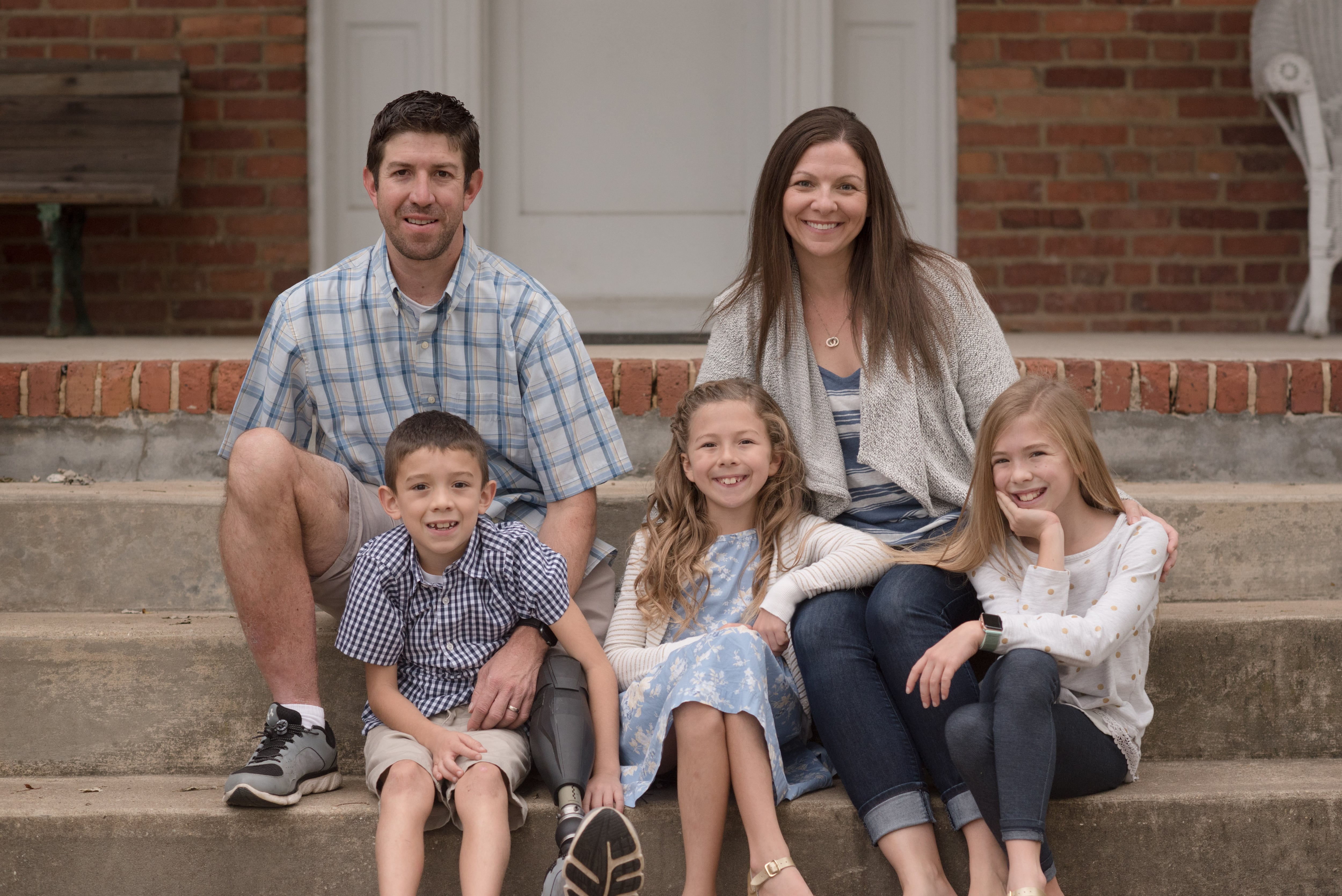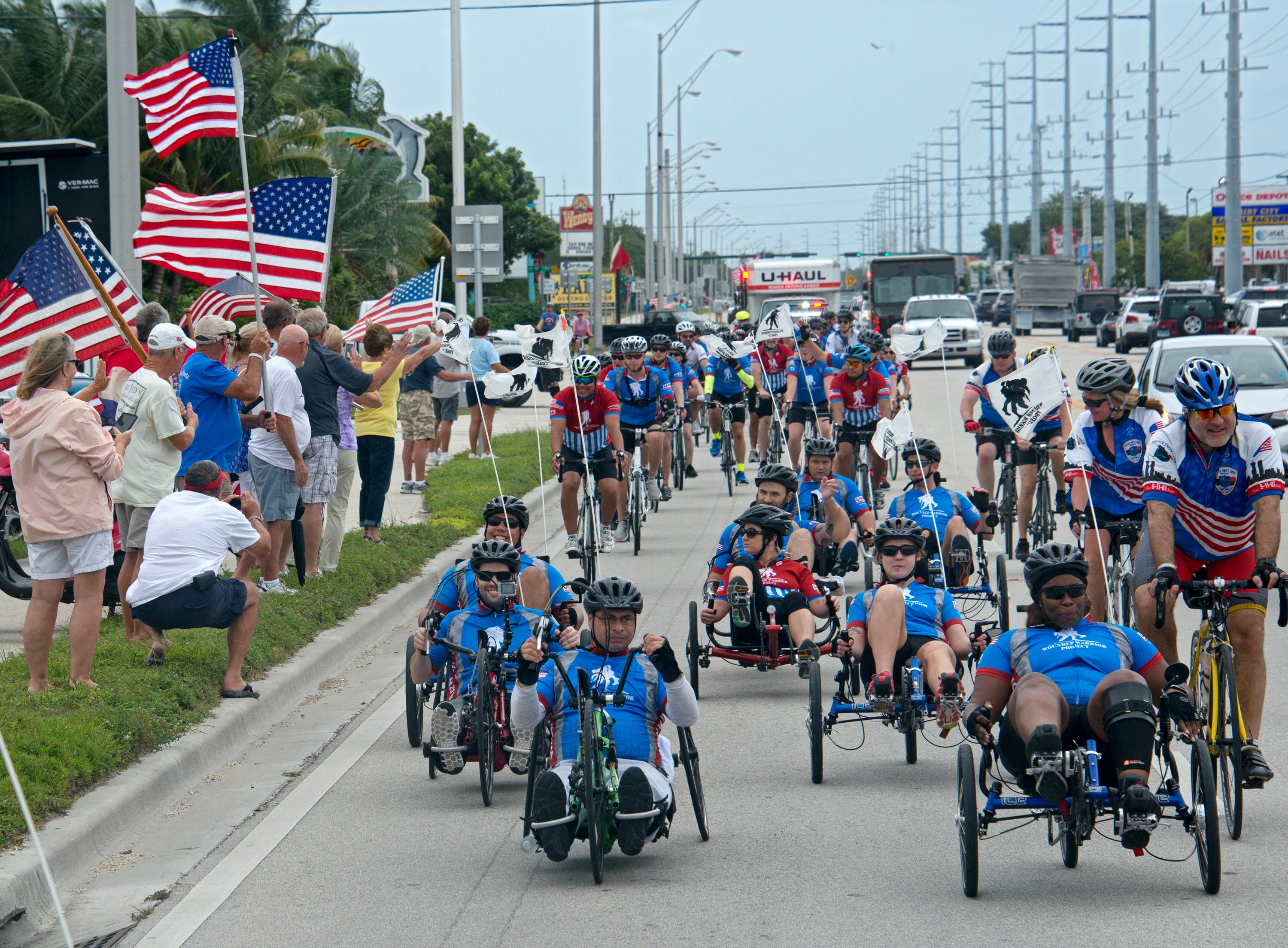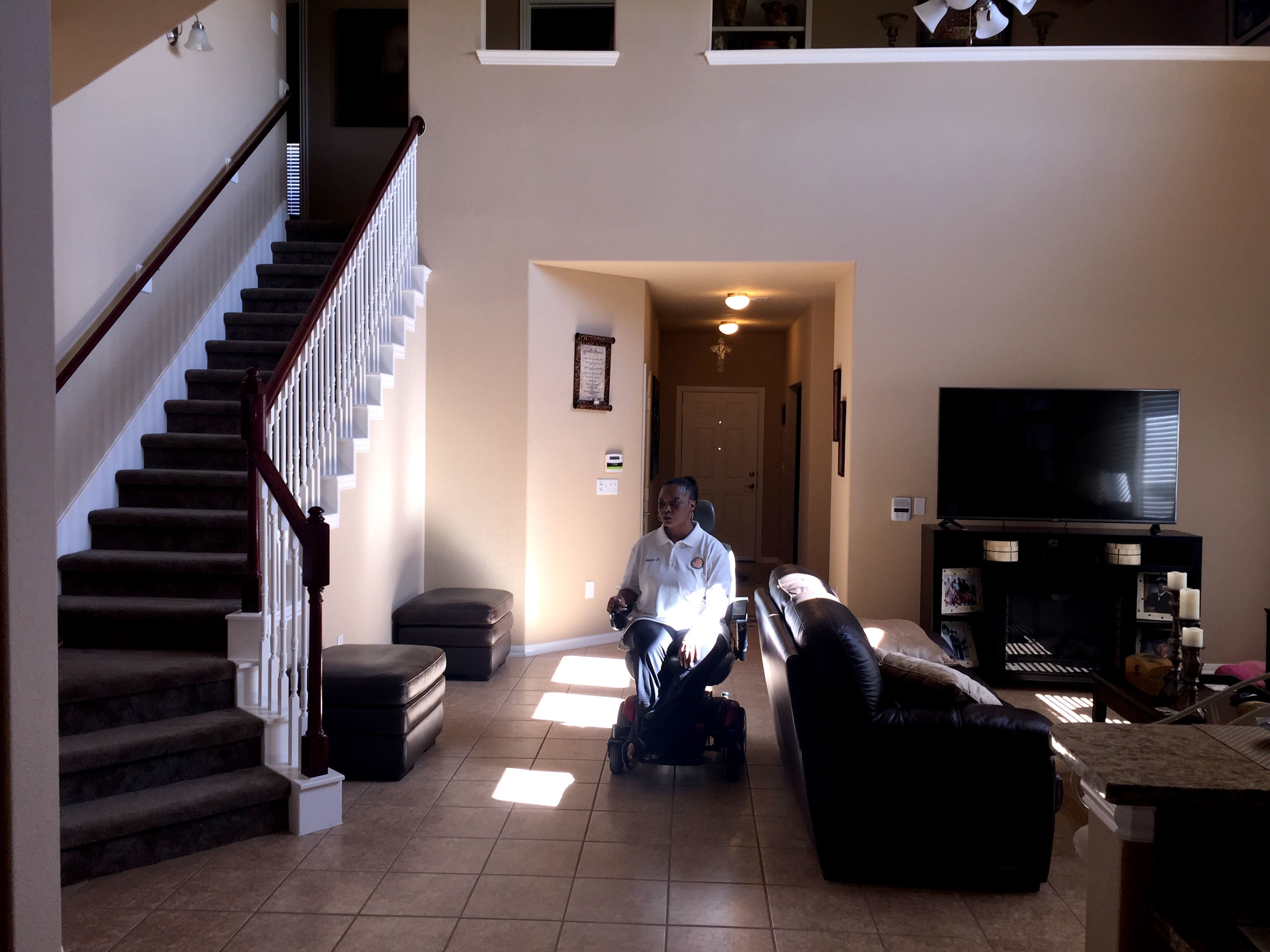When retired Army Capt. Ryan Kules went house hunting in 2015, he had to factor in an extra $100,000 in costs because of his war injuries.
That included widening doorway so his wheelchair could fit through, making kitchen cabinets and hallway closets more accessible, and completely renovating showers so he could walk in without difficulty.
“It’s not just one thing you have to modify, it’s the whole thing,” said Kules, 38, who lost his right arm and left leg in a roadside bomb attack in 2005. “One of the changes we had to make was having our master bedroom on the first floor .. we’re lucky because we were able to make it work with what we had available.”
The Department of Veterans Affairs provides grants to disabled veterans for the housing work, but that wasn’t available to Kules because he had already used the program back in 2009, when he bought his first home.
That house was a good fit for the Kules family at the time, before the birth of his second daughter and his son. But as his family changed, the VA adaptive housing program didn’t.
On Thursday, Kules was on Capitol Hill with Wounded Warrior Project to lobby on behalf of an upgrade to the program. The group (along with other veterans advocates) is pushing for legislation boost the VA’s Specially Adaptive Housing Grant by more than 15 percent (to $98,000) and allow disabled veterans to renew the payout every 10 years.
“Young critically injured veterans will age, many will marry, and some will be fortunate enough to grow their families with children,” Derek Fronabarger, director of government affairs for WWP, told members of the House Veterans’ Affairs Committee during a hearing on the proposal.
“We want warriors to thrive in their work and personal lives. For those who seek new and better opportunities in life and career, relocating has to be an option. It is, in our estimation, unreasonable to expect a veteran to buy a home and never leave.”

Expanding the program is expected to cost about $120 million over 10 years. About 2,000 veterans use the program annually, a figure that would rise if veterans could apply a second time for the grants.
Lawmakers expressed general support for the idea at Thursday’s hearing, but also face a host of unrelated budget fights in coming months. Advocates say the issue is one that want to make sure doesn’t get lost in other priorities.
“This benefit is reserved for those catastrophically injured and who deserve our assistance throughout their entire life, not just one portion of it,” Fronabarger said.
RELATED

Kules said he is comfortable in his renovated suburban Maryland home now, but he knows other disabled veterans aren’t as financially secure to be able to make similar moves without government help.
“This move was to set us up better for our family,” he said. “Having those funds available would make it easier to expand a search.
“And it would just let us know that I shouldn’t have any limits, where we want to live and where we’re able to be, just because I have a disability.”
Leo covers Congress, Veterans Affairs and the White House for Military Times. He has covered Washington, D.C. since 2004, focusing on military personnel and veterans policies. His work has earned numerous honors, including a 2009 Polk award, a 2010 National Headliner Award, the IAVA Leadership in Journalism award and the VFW News Media award.





